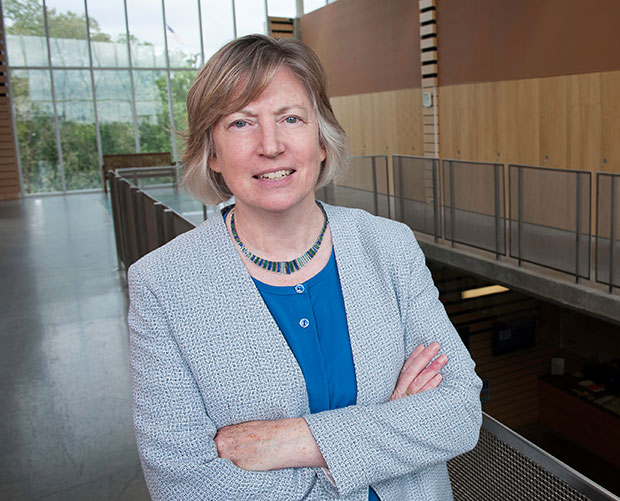A Diplomat’s Perspective on How to Cope With a Changing World

Mary Curtin is the diplomat-in-residence at the University of Minnesota's Humphrey School of Public Affairs. She was a Foreign Service officer in the U.S. State Department for 25 years. She earned a PhD in history from Columbia University, where she wrote her dissertation on Hubert H. Humphrey and Cold War politics. She offers her insights into the current state of international relations.
It is hard, if not impossible, to fully understand or even begin to analyze the impact of change while in the midst of it. But it seems to me that we are indeed at the end of the post-Cold War period and on the cusp of a new era.
The indicators that a shift is underway are many. Since the election of Donald Trump a year ago—or perhaps even going back to the 2016 Brexit vote or before—we’ve seen an increase in the number of those who doubt democracy’s value both here and in Europe; and actions by the Trump administration signal decline in U.S. global leadership and, in return, a loss of respect for the United States as a diplomatic force.
We’ve seen the undermining of institutions like the State Department and of long-standing U.S. commitments to multilateral institutions, agreements, and the idea that human rights and democracy should be at the center of our policies. We’ve seen emboldened white supremacist and nationalist movements, threats to freedoms and norms here and abroad, and a Russian effort to sow chaos and division within and among Western states.
For many years after the end of the Cold War, it was widely accepted—at least in the West—that democratic, free-market systems could prevail, that peace could be promoted globally through concerted action, and that the world would look to the United States for leadership. And while there were many significant challenges to the idea from the start, there was a sense that globalization could mean good things to many different people.
The United States and its European partners proclaimed the goal of Europe as “whole, free, and at peace,” and developed workable plans to bring former Soviet-dominated states into what was envisioned as an ever-broadening European Union and NATO.
Despite protests, the U.S. helped create the World Trade Organization, which sought to bring order to global trade; the United Nations organized summits to advance the status of women, address social problems, and tackle climate change; nongovernmental organizations built webs of support and information-gathering and sharing that led to greater respect for human rights; corporations developed new technology, while the internet (developed by the military) and social media sought to enable global connections unimaginable just decades before.
But there have been unintended consequences. In response to rapid change, right-wing groups here and in Europe began to resurge and democracy grew inconsistently worldwide. While low-scale proxy wars in Africa and Central America ended, many armed groups that had engaged in those wars turned to criminal violence that persists today.
Ethnic conflict roiled many countries in Africa; Al Qaeda emerged from the Mujaheddin’s fight against Soviet domination of Afghanistan; the United States invaded Iraq, unleashing instability across the region; and while absolute poverty declined worldwide, economic inequality grew. The world the United States helped create after the end of the Cold War is facing serious challenges.
These threatening developments are not the result of accident. The post-Cold War era was shaped by leaders who (however imperfectly) sought to promote democracy, human rights, and free markets, and shape global systems to achieve that. While we should be alarmed at today’s threats to democracy and global peace, we should not feel that we are powerless or that the worst-case scenarios—the decline of democracy or the outbreak of war—are inevitable. The most dangerous thing of all is if we decide that we can do nothing to shape this new era as it starts.
We need to start by being smart analyzers of the change we are living and mindful of the values that undergird our work. We must provide evidence-based policy recommendations, counter the falsehoods circulating in the public sphere, and honestly address the needs of those who did not thrive in the era that is ending. There is indeed much to be alarmed about, but we need to do far more than react in horror at each day’s (or hour’s) news. We need to shape the new era that is upon us.

